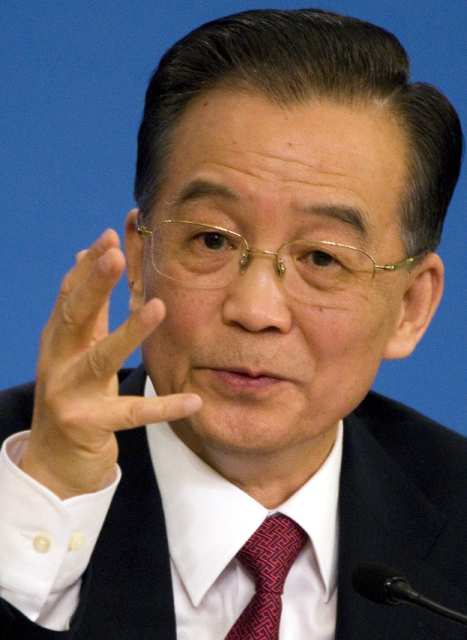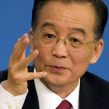
China Debates Forex Reserves; Boosts Strategic Petroleum Reserves
Publication: China Brief Volume: 9 Issue: 6
By:

A string of recent pronouncements from Beijing leaders capped off with a strong statement by Premier Wen Jiabao over his concerns for the value of China’s $681.9 billion investment in U.S. Treasury bonds has highlighted a troubled Chinese leadership’s outlook for 2009. Premier Wen’s statement was received by analysts as a strong warning to Washington. It follows a revision in the $588 billion Chinese fiscal stimulus package (see Willy Lam’s article in this issue) at the recently concluded National People’s Congress (China’s parliament) and the release of a joint communiqué at the close of the G-20 finance minister meeting by Brazil, India, Russia and China (BRIC). The timing of these pronouncements outlines the silhouette of China’s nascent comprehensive economic strategy at home and abroad. Moreover, it is an outlay of the on-going heated debate within China over its roadmap for economic recovery and a test of Sino-U.S. relations, given China’s massive $2 trillion foreign exchange reserves (China Daily, December 17, 2008).
During the "meet-the-press" session after the close of the NPC on March 12, Premier Wen said, "We [China] lent such huge fund to the United States and of course we’re concerned about the security of our assets and, to speak truthfully, I am a little bit worried." In an unusually direct appeal, Wen added, "I request the U.S. to maintain its good credit, to honor its promises and to guarantee the safety of China’s assets" (Xinhua News Agency, March 13). On the issue of China’s foreign reserves, Wen asserted that Beijing’s primary concern will be to preserve its national interest, but he also acknowledged that, "we [China] also have to consider the stability of the overall international financial system, as the two factors are interlinked." Wen’s statement linking China’s national interests to stability in the international financial system were meant to allay concerns over the possible destabilizing impact of China’s rise in the international system. The statement also reflects the oft-stated official position that China is a responsible stakeholder, and to brush aside any lingering expectation that China will take a leadership role in reshaping the post-Bretton Woods system.
In an interview with the Chinese publication Economic Observer, Wu Xiaoling, vice president of the NPC Financial and Economic Affairs Committee, explained that "[China’s] reserves were a form of liability that could not be directly used for public spending" (Economic Observer [China], March 13). "Though the foreign currency reserves are an asset of the central bank, they are also a liability—the central bank is indebted to society, and must be safeguarded" Wu added. Wu was also the ex-deputy governor of the central bank and former chief of the State Administration of Foreign Exchanges (SAFE), which is the administrative agency that manages the state foreign reserve system. When asked about the central government’s approach to the management of its foreign reserves under the global financial crisis, Wu stressed: "ensure safety, profitability and liquidity." In the same interview, it was reported that China’s account surplus declined by 27 percent year-on-year in 2008, illustrating the stress on the value of Chinese assets. "The best way to minimize [further] risk is to scale down the size of the foreign currency reserves." According to Wu, other ways the government can reduce the heavy burden of the reserves is by "setting up a Renminbi equity investment fund, or expanding trade and foreign investment" (Economic Observer, March 13).
One sector for development clearly targeted by Beijing’s diversification campaign is its strategic petroleum reserves (SPR) (China Daily, March 2; Sankei Shimbun, March 4). As early as January 2009, Zhang Guobao, head of the NEA and Vice-minister of the National Development Reform Commission, penned an article in the People’s Daily saying, "The country [China] should take advantage of falling global energy prices to increase its oil reserves" (China Daily, March 2). According to a plan recently released by China’s National Energy Administration (NEA), China plans to build nine large refining bases along its coastal areas over the next three years (China Daily, March 2). In a national energy conference in early February, the NEA also announced that China will build eight new strategic SPR bases on top of the current four by 2011, and increase China’s strategic crude capacity from 103 million barrels (mb) to 281 mb. The four existing SPR bases are in Zhenhai, Zhoushan, Huangdao and Dalian; two confirmed venues for future SPR tanks are in Huanggao and Jinzhou; and the following venues are possible locations for the remaining six SPR tanks that are being planned to be built: Quanzhou, Shantou, Guangzhou, Bao’an, Zhanjiang, Yangpu, Yantai, Binhai, Caofeidian, Tieling, Linyuan, Lanzhou, Wanzhou and Shanshan (China Daily, March 2).
Western analysts, however, point out that the two countries’ current strategy and economic trajectory are in a knot: "If China refuses to keep buying our bonds, the value of the dollar will plunge, and so, too, will the value of China’s foreign reserves held in dollars," said Peter Navarro, an associate professor of public policy at the Paul Merage School of Business, University of California, Irvine. Navarro added, "On the other hand, if China keeps buying our debt to prop up the dollar, it faces a strong likelihood that with so much fiscal stimulus and easy money coursing through the U.S. system, inflation is all but inevitable. That, too, will ultimately devalue the dollar and therefore Chinese foreign reserves. So, for the Chinese, the question is whether to cut and run now or hold on and be scalped later."





